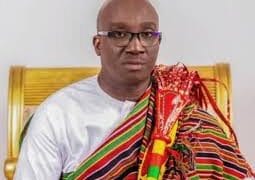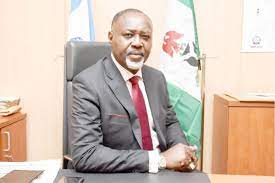The Managing Director of National Inland Waterways Authority (NIWA), Dr. George Moghalu, has again tasked the federal government to as a matter of priority dredge the waterways in the country for all year-round navigation.
Moghalu made the call when the House of Representatives Committee on Mass Transit visited the agency’s Abuja office on an oversight function.
This, was even as the Committee Chairman, Hon. Afam Ogene expressed concerns that the agency was underutilised in the face of the transportation difficulties Nigerians are going through after the removal of fuel subsidy.
Magholu said: “In NIWA today, we do what we call maintenance dredging to ensure all year round navigable. But there is need for capital dredging. It was done sometimes in 2010, 2013 to 2015, long before I came. There is need for it to be done again. But, it is not a tea party.
“We are now involving private experts through a PPP arrangement. However, if we can get the resources, we can deploy them to productive channels. God has given us waterways but it I left for us to maintain them.”
The NIWA boss who blamed incessant boat mishap incidents on the waterways on human error by the operators, however, assured the committee on laid down plans to avert reoccurrence in the country’s waterways.
His words: “We can’t talk about mass transit scheme without talking about water transportation. There is a lot of movement on our waterways.
We have over 8530 kilometres of free coastal lines in the country and developed, it will be beneficial and impact positively on the economy.
“If half of what has been deployed into road transportation in terms of resources is channeled to water transportation, we won’t be where we are today.”
Moghalu further opined that the agency was doing everything to ensure that it prevent water transportation accidents including following due process to ensure proper regulation.
He noted, “We are very unhappy over road mishap, but a good percentage of the accidents on our waterways were consequences of human error, especially overloading and bad weather.
“In some instances, we provide them with life jackets, but they won’t wear. They told me that they are fishes inside the water, but I have been constantly educating them that even fishes do die in water. There are situations where a boat designed to carry 50 passengers end up carrying 255 passengers.
“We have consistently tried to overcome them by strict regulations and engaging more people like local merchants but one issue very critical in this your assignment is that there is every need to open up channels.”
The NIWA boss stressed that the effort and plans of the National Assembly to lay strong emphasis on the need to develop the waterways sector is a commendable one, noting that the potentials in the blue economy, if properly harnessed will be so massive that Nigeria would not be talking about oil again.
On his part , Ogene, expressed concerns that the agency was underutilised in the face of the transportation difficulties Nigerians are going through after the removal of fuel subsidy.
Ogene said strongly that NIWA should be a critical beneficiary of any further mass transportation scheme, in terms of regulating even ferrying services.
He said, “Every now and then, we hear of boat accident. If it is not happening in Adamawa, it is happening in Niger, Lokoja, Rivers and the likes.
“I think that a well regulated ferrying transportation, it will even boost tourism beyond the movement of people. Beyond the movement of goods, people would want to travel by water once the facilities like life jackets and security.
“And with our roads getting increasingly unmotorable, waterways is one clear alternative that we need to develop. We are here to have interface with the management team of NIWA.”















